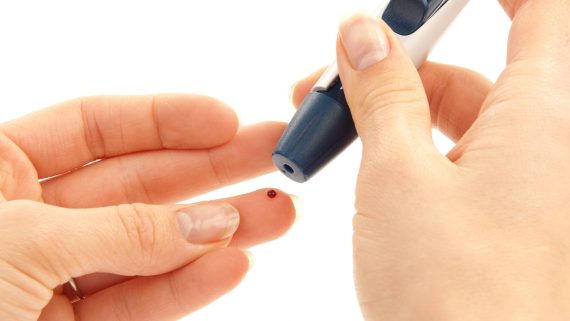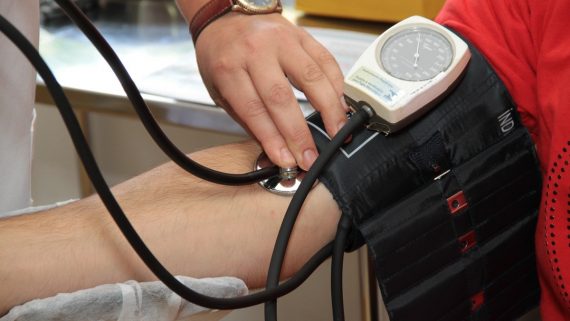Introduction
Living with diabetes requires a holistic approach that goes beyond simply managing blood sugar levels. At Wellness Diabetes Clinic, we understand the importance of comprehensive care for individuals with diabetes. In this blog post, we will explore various aspects of diabetes management, including nutrition, exercise, stress management, and more. By adopting a wellness-focused approach, you can take charge of your health and lead a fulfilling life with diabetes.
1.Understanding Diabetes
To effectively manage diabetes, it is crucial to have a solid understanding of the condition. In this section, we will discuss the different types of diabetes, the underlying causes, and how they affect the body. By grasping the fundamentals, you can make informed decisions about your lifestyle and treatment options.
2.Blood Sugar Monitoring and Medication
Monitoring blood sugar levels and taking prescribed medications are essential components of diabetes management. We will provide insights into the various monitoring techniques available, tips for accurate
COVID-19, which has affected over 1.5 million globally and killed more than 100,000 people, is not different from how influenza viruses, or even the coronaviruses responsible for the common cold, attack the body. Therefore, the immune system has a predictable response.
What is Immunity?
Immunity is a state of resistance of an organism to invading biotic or abiotic pathogens and their harmful effects that prevents the development of infection and maintains organism’s integrity by counteracing, neutralizing, and clearing pathogens.
Types of Immunity
- Innate Immunity: First line of defence against infection and not specific to a particular pathogen.
- Adaptive Immunity: Provides a specific immune response directed at an invading pathogens.
How can one boost immunity?
A holistic approach would be required for a strong immune system.
Your first line of defense is to choose a healthy lifestyle. Following general good-health guidelines is the s
Did you know sitting for long periods can have a serious impact on your health? This could be an issue if you have a desk job.
Here are some tips to stay healthy in the office, or while working from home due to the coronavirus social distancing.
Plan and bring a healthy snack
Having prepared snacks helps you stay healthy during the day. Some snacks include carrot sticks and hummus; handful of nuts and seeds, small pieces of fruit. Pick the snack that’s right for you.
Get an adjustable standing desk
With all this talk about sitting – why not consider an adjustable standing desk. An adjustable standing desk forces you to exercise and can help keep you alert.
Move around every once in a while
If you can’t get an adjustable standing desk set a reminder either in your calendar or on your phone for every hour to stand up and have a walk around the office.
Drink Water
Looking after your skin is important for everyone, but it’s even more so for people living with diabetes. Diabetes can accelerate the natural process of your skin drying out as you age.
Why your skin is important
The skin is the body’s largest organ and performs several important roles in protecting your health. Your skin acts as a barrier between the dry and potentially dangerous outside and the venerable inside mechanisms of our bodies. Glands associated with hair follicles produce the oils and sweat that maintain the barrier. The nervous system controls these glands and if damage occurs and the skin dries out, small cracks can occur which signifies the barrier has been broken. Moisture from beneath the skin can then leak out and lead to more cracking, which can increase the risk of infection and skin discomfort.
As we get older, we gradually lose the individual nerve fibres in our body which means that our skin cannot protect us as well and we are more susceptible to damaging factors from outside, such as dryness.
Dry skin
Damage to the small blood vessels and nerves commo
If you have diabetes, exercise offers surprising benefits. As it lowers your stress levels, it lowers your blood sugar level.
How much exercise is right for you? For people with diabetes, The National Institutes of Health (NIH) recommends 150 minutes of aerobic exercise each week. Exercise is so important for people with diabetes that the American Diabetes Association recommends that these patients miss no more than two days of aerobic exercise in a row.
5 exercises for people with diabetes
There are many exercises that will benefit people with diabetes. Here are five we recommend:
- Walking — Because anyone can do it almost anywhere, walking is the most popular exercise and one we highly recommend for people with diabetes. Thirty minutes to one hour of brisk walking, three times each week is a great, easy way to increase your physical activity.
- Tai Chi —This Chinese form of exercise uses slow, smooth body movements to relax the mind and body. In 2009, researchers at the University of Florida studied 62 Korean women assigned to one of two groups—a control group and an exercise group that began
Staying on top of our diabetes management is more challenging than one may think. With work, family and life responsibilities, it can be hard to remember to put in the time and energy that your diabetes deserves. With just a few tweaks to our everyday routine, we can easily improve our blood sugars and the way we feel, too!
Here are 5 ways to improve your A1c with type 2 diabetes:
1. Get Moving
It doesn’t matter if you are a heavy weight lifter or someone who walks around the block with a friend. Just staying active is enough to help get your blood sugars under control. Find something you love and do it often.
2. Mind Your Meds
Don’t forget to take your medication and aim for the same times each day. Try and be in tune to any changes in your blood sugar and how you feel so you can work with your doctor to find the right medications and doses that work b
Discovered in 1921 by Frederick Banting and Charles Best, insulin is the hormone that allows glucose (sugar) to get into the cells of our body that need glucose for energy. Insulin is produced by the beta cells of the pancreas which reside in specialized structures called the islets of Langerhans in the pancreas.
Every living mammal needs insulin to survive. Humans, cats, dogs, pigs, cows, and even dolphins all need insulin to maintain healthy blood sugar levels. Without enough insulin, your blood sugar can rise to dangerously high levels.
Malfunctions in Insulin Production and Utilization: A Hallmark of Diabetes
People with pre-diabetes or type 2 diabetes do not make enough insulin, or their bodies are unable to make use of the insulin they are producing. Insulin resistance is commonly an aspect of pre-diabetes and type 2 diabetes in which the body needs more and more insulin to do the job of maintaining healthy blood sugar levels that it used to do with a lesser amount of insulin.
P
Vacation—all you ever wanted. As exciting as it is to finally head out on a much-anticipated getaway, having a health condition like diabetes can add to the packing and prep challenge. How to pack light with all that medication and insulin? What snacks can travel safely on an airplane (and through TSA’s tight bag checks)? What if you have a health issue hundreds (or thousands) of miles away from your trusted doctors?
When it comes to travelling with diabetes, extra planning can go a long way toward making you feel comfortable. Here are some tips to manage diabetes while travelling, whether it’s a flight to Greece or a camping trip a couple of hours away.
- Don’t focus on packing ultra light. Yes, it’s sometimes ideal to arrive at the airport with only a carry-on bag, but this may not be the safest option for you if it means compromising your needs. Pack twice as much medication and blood-testing supplies as you think you’ll need.
- Wear a medical ID bracelet or necklace to alert others that you have diabetes, just in case of an emergency. (It probably won’t happen, but it’s best to be prepared.)
- Learn how to say “I have diabetes and I need sugar or orange juice, please,” in the language of the place you are visiting. This
Type 2 diabetes is a serious condition, but the number-one cause of death for people with type 2 diabetes is actually heart disease. Heart disease and diabetes often occur together, and the link between them is high blood sugar.
Heart disease is the leading cause of death in the United States. In fact, the CDC reports heart disease is responsible for one of every four deaths. For this reason, it’s essential for anyone with type 2 diabetes to understand the link between heart disease and diabetes and take proper preventative measures to manage or reverse their diabetes.
If you have type 2 diabetes, you probably already know about insulin resistance. Because the body does not use insulin properly, the pancreas tries to compensate by making extra insulin. Over time, it can’t keep up, and the body cannot maintain normal blood glucose levels.
Those high glucose levels can harden arteries over time. Your arteries need to be spacious and flexible to get proper blood and oxygen circulation throughout the body; tight and rigid arteries force the heart to work harder to pump the blood around. This leads to heart disease.
Additionally, people with type 2 diabe
A little daily exercise can go a long way, especially for those with type 2 diabetes. “When I talk to patients with type 2 diabetes about exercise, I put it this way,” says diabetologist Dr Paresh Ved. “If you could do something that could lower your A1C, improve your stress level, improve your sleep, improve your health, and had no side effects, you do it?” The answer, he says, is usually yes.
Exercise can actually bring blood glucose levels down, according to the American Diabetes Association. When you work out, your muscles need to use the available insulin to take in glucose for energy, thus lowering the levels in the bloodstream.
Not only does this lower blood glucose levels temporarily, but sticking with a regular workout groove can lower your A1C over time. (Learn more about the A1C test for managing diabetes here.)
Adding exercise to your daily routine helps protect your heart, too, which is critical because diabetes increases your heart disease risk significantly. For example, regular exercise helps lower blood pressure, which makes it easier for the heart to pump oxygen-rich blood thro









